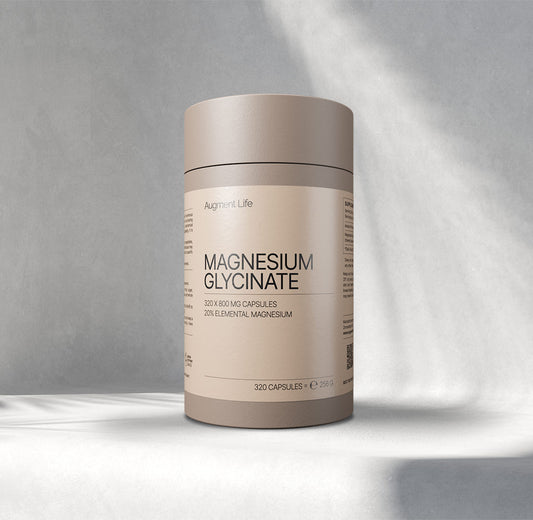Is Ginseng Good for Menopause?
In the midst of the profound physiological changes that women experience during menopause, the search for natural remedies to alleviate its symptoms has gained prominence over the years.
One such remedy that has captured the attention of researchers and women alike is ginseng. This ancient herbal root has been revered for its potential to mitigate menopausal symptoms and improve overall well-being.
In this article, we will dig deep into the fascinating connection between ginseng and menopause, exploring what ginseng is, its potential benefits, the scientific evidence that supports its use as a complementary option for menopausal women, the best ways to take it, and so much more.
What is Ginseng?
The name “ginseng” comes from the Chinese term “rénshēn” which means “man root” because of its resemblance to the human form. Its use in traditional medicine dates back to over 2,000 years ago and has become one of the most sought-after herbal medicines. Particularly, the medicinal part is made of the dried main and lateral root and root hairs.1
There are several types of ginseng, with the most commonly recognized ones being Asian ginseng (Panax ginseng) and American ginseng (Panax quinquefolius). While both types share some similarities, they also have distinct characteristics. Asian ginseng, also known as Korean ginseng, is known for its invigorating effects. American ginseng, on the other hand, is considered a cooling herb and is typically used for its calming effects and potential adaptogenic properties.2
Benefits of Ginseng in Menopause
1. May reduce hot flashes
In a systematic review, it was found that three randomized control trials showed that ginseng, specifically Korean ginseng, can significantly improve the onset of hot flashes among postmenopausal women.3
2. May improve sexual desire
Ginseng has also been found to be beneficial in improving sex drive, also known as libido, which can be affected during menopause. In one study among 41 premenopausal women, taking three ginseng capsules each containing 1 mg of Korean red ginseng for 8 weeks significantly improved sexual desire and other satisfaction domains.4
3. May help improve mood
Two well-designed studies evaluating red Korean (Asian) ginseng suggest it may relieve some of the symptoms of menopause, improving sense of well-being and mood, particularly feelings of depression.5
Side Effects
Panax ginseng generally is well tolerated for most people when used at recommended doses. But still for some, it may cause adverse effects, but are usually mild and reversible.7
Associated adverse effects include: 6-8
- Nausea
- Diarrhea
- Insomnia
- Headache
- Breast pain or tenderness
- Bleeding
- Low blood sugar levels
Remember to seek the guidance of a healthcare professional, especially if you have underlying health conditions, are pregnant or breastfeeding, or are taking medications.
Recommended Dosage and How to Consume
The recommended dosage and method of consuming ginseng can vary depending on the type of ginseng you are using, its form, and your specific health needs. It’s essential to follow the manufacturer’s instructions on the product and to consult with your physician for personalized guidance.
However, here are some general guidelines: 10
1. Capsules/Tablets
Capsule formulas are generally given in a dosage of 100 to 600 mg per day, usually in divided doses.
2. Dry Root (Tea form or Chewed)
When taken in tea form or chewed, 0.5 to 2.0 grams per day is recommended.
Possible Interactions
Ginseng may interfere with certain medications such as:9
- Anticoagulants, such as warfarin
- Antiplatelets, such as clopidogrel
- Monoamine oxidase inhibitors, such as phenelzine
- Calcium channel blockers, such as nifedipine
- Antipsychotic drugs, such as chlorpromazine
- Antidiabetic drugs
- Immunosuppressants, such as azathioprine
- Vitamins, corticosteroids, and other herbal products
Final Words
With proper guidance from your healthcare professional, ginseng stands as an ally for women navigating the transformative journey of menopause.
References
- Ginseng - Health Encyclopedia - University of Rochester Medical Center. (n.d.). https://www.urmc.rochester.edu/encyclopedia/content.aspx?contenttypeid=19&contentid=Ginseng.
- Park, E. Y., Kim, M. H., Kim, E. H., Lee, E. K., Park, I. S., Yang, D. C., & Jun, H. S. (2014). Efficacy comparison of Korean ginseng and American ginseng on body temperature and metabolic parameters. The American journal of Chinese medicine, 42(1), 173–187. https://doi.org/10.1142/S0192415X14500128.
- Lee, H. W., Ang, L., & Lee, M. S. (2022). Using ginseng for menopausal women’s health care: A systematic review of randomized placebo-controlled trials. Complementary Therapies in Clinical Practice, 48, 101615. https://doi.org/10.1016/j.ctcp.2022.101615.
- Chung, H. S., Hwang, I., Oh, K. J., Lee, M. N., & Park, K. (2015). The Effect of Korean Red Ginseng on Sexual Function in Premenopausal Women: Placebo-Controlled, Double-Blind, Crossover Clinical Trial. Evidence-based complementary and alternative medicine : eCAM, 2015, 913158. https://doi.org/10.1155/2015/913158.
- Wiklund, I. K., Mattsson, L. A., Lindgren, R., & Limoni, C. (1999). Effects of a standardized ginseng extract on quality of life and physiological parameters in symptomatic postmenopausal women: a double-blind, placebo-controlled trial. Swedish Alternative Medicine Group. International journal of clinical pharmacology research, 19(3), 89–99.
- Vogler BK, Pittler MH, Ernst E. The efficacy of ginseng. A systematic review of randomised clinical trials. Eur J Clin Pharmacol. 1999;55:567-75.
- Coon JT, Ernst E. Panax ginseng: a systematic review of adverse effects and drug interactions. Drug Saf. 2002;25:323-44.
- Ernst E. The risk-benefit profile of commonly used herbal therapies: ginkgo, St. John's wort, ginseng, echinacea, saw palmetto, and kava [published erratum appears in Ann Intern Med 2003;138:79]. Ann Intern Med. 2002;136:42-53.
- Elsevier, Inc. (n.d.). Ginseng capsules or tablets. Cleveland Clinic. https://my.clevelandclinic.org/health/drugs/19105-ginseng-capsules-or-tablets.
- Kiefer, D. (2003, October 15). Panax Ginseng. AAFP. https://www.aafp.org/pubs/afp/issues/2003/1015/p1539.html.








